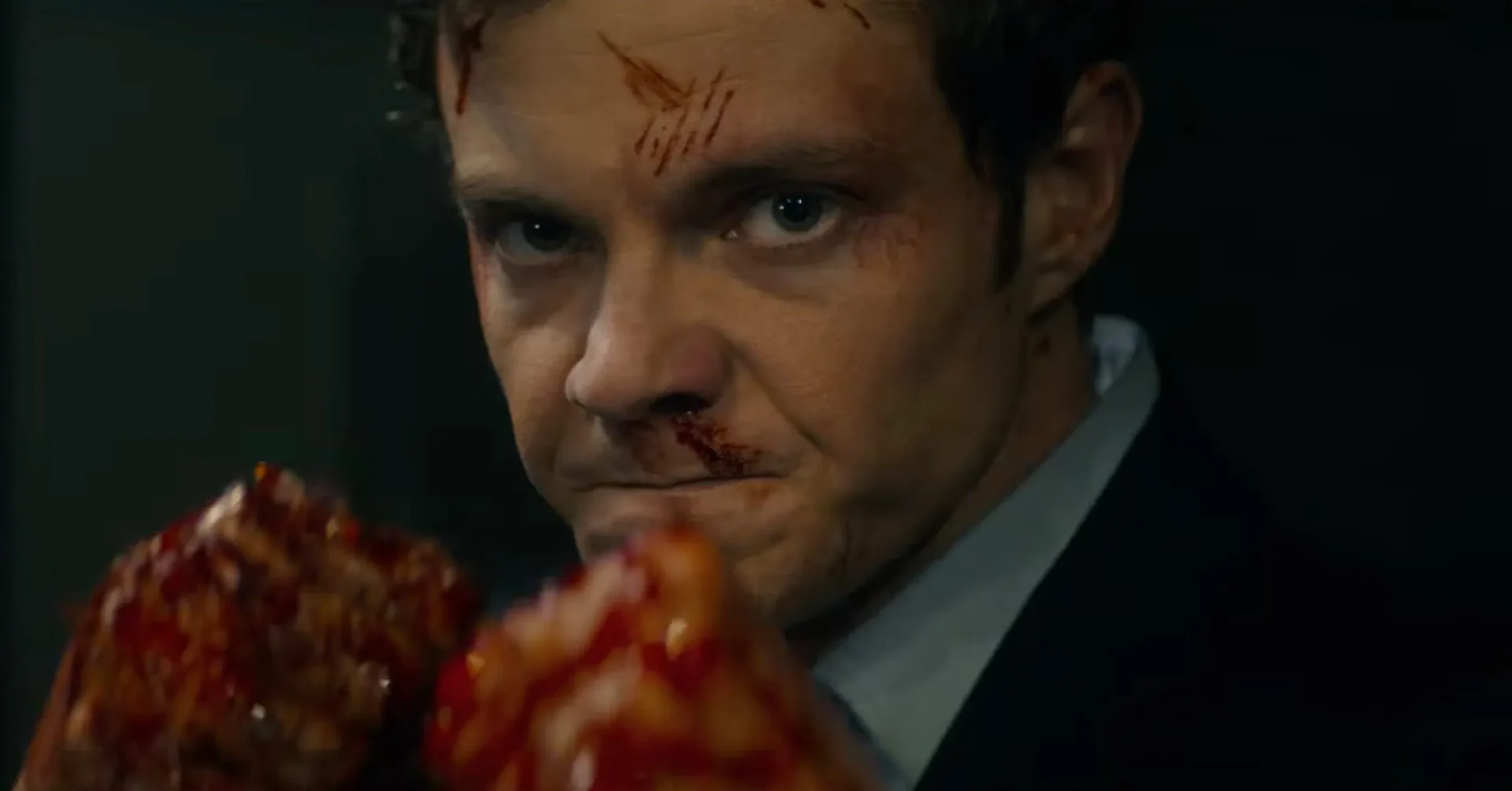Who wouldn’t want to go through life without experiencing pain? This is a question one might ask in the face of Novocaine (2025) and its particular action-comedy gimmick, but is also one that the film answers just as soon as it sets it up. In theory, the lack of physical pain would make life a breeze, but in the end, there’s a reason our bodies tell us we’re hurting; the only thing more dangerous than the knife is the knife that slowly bleeds you out before you ever realize it was ever there in the first place.
For a film as ostensibly “Deadpool”-brained as this one (right down to the protagonist’s “ability”), you’d hardly expect such an angle, and directors Dan Berk and Robert Olsen don’t exactly escape the potential charges of “comedy that trades layered punchlines for juvenile curses amid the blood-splatter.” For what it’s worth, however, “Novocaine” never forgets the implications of its pain-free premise, and finds just as much in the character as it does in the slapstick… regardless of how much more (or less) could have been at play.
The central gimmick in question, as you may have deduced by now, is that Nathan Caine (Jack Quaid) suffers from a rare congenital insensitivity to pain (CIP), which essentially leaves the pain receptors in his brain completely numb to any sort of trauma to the body. Everyone who hears this immediately hails it as some sort of superpower, but Nate has lived this way long enough to know that he’s essentially a reverse-Wolverine; he may not feel any aches from a gash in his leg or a third-degree burn, but perhaps losing that numbness that might be worth the trade-off of noticing that your shoe is filling up with blood because you’ve stepped on a rusty nail.

Living his sheltered life wary of the fact that any scrape or breakage could appear and cause him life-threatening harm completely unbeknownst to him—the man doesn’t even eat solid food out of fear that he may inadvertently bite off his own tongue—Nate’s trepidation is alleviated somewhat by the presence of his recent bank coworker, Sherry (Amber Midthunder). A beacon of light in his secluded existence, Sherry’s effect on Nate’s state of mind becomes ever clearer when a bank robbery results in her being taken hostage. With nothing in his life but her, Nate sets off on an impromptu rescue mission.
Any other comedic scenario would likely turn Nate’s condition and his complete lack of any physical prowess as a literal punching-bag, but while Lars Jacobson’s script doesn’t even attempt to reach for an explanation as to how the timid banker manages to hit back, “Novocaine” is at least earnest in its desire to express why he’s doing so. True, Berk and Olsen lack the visual eyes for choreography and set-piece construction that made even last month’s “Love Hurts” mildly propulsive in its action aims, but the creative application of Nate’s CIP gives this film its own tempered charm.

One scene in particular, in which Nate is forced to buy time by feigning excruciating pain in a torture scenario, is rather emblematic of what “Novocaine” is able to achieve when the dosage is just right, as Quaid’s calculated delivery is matched with surprisingly gnarly developments for the sort of film ostensibly engineered for 13-year-olds to sneak into after purchasing tickets for “Snow White.” Right up to the end, Berk and Olsen turn the punchline in on itself to keep Nate’s increasingly gruesome changes just as consequential to the character’s safety as they are amusingly grisly.
For all this creativity on display, the film’s inherent forward motion dictated by a seemingly time-sensitive chase does begin to come down from its high once “Novocaine” limps towards its finale. A typical conclusion is here subverted to a final sequence that, like Nate’s physical state, begins to feel like overkill that cripples the momentum of the narrative; though the film’s ending remains emblematic of the aforementioned mixture of comic repulsion, Berk and Olsen lose track of the tight, 90-minute thrill-ride buried somewhere in this near-two-hour overflow of increasingly relevant settings and side characters.
To its credit, Jacobson’s script does make the effort to compile consequential narrative developments, particularly in the central relationship between its two would-be romantic leads, to try and justify this padding-out; nonetheless, Dan Berk and Robert Olsen leave a few too many wounds unpatched to bleed out. Through all the bloody knuckles and broken bones, though, what “Novocaine” accomplishes, if rather sappily, is giving Nate a believable justification for all this pain he’s (not) enduring for Sherry. The brain’s lack of reaction to the body’s pangs doesn’t necessarily preclude the heart’s sunken reaction to the depression of the mind, nor its uplift from the gentle touch of a loving hand to caress the bruises.




![Bhramam [2021] Review – The strong story of the source material helps carry a decent remake to the finish line](https://79468c92.delivery.rocketcdn.me/wp-content/uploads/2021/10/Bhramam-2-highonfilms-768x432.jpg)



![The Call [2020] Netflix Review: When Present and Past Collide in a Hopeless World](https://79468c92.delivery.rocketcdn.me/wp-content/uploads/2020/12/The-Call-Netflix-highonfilms-1-768x432.jpg)